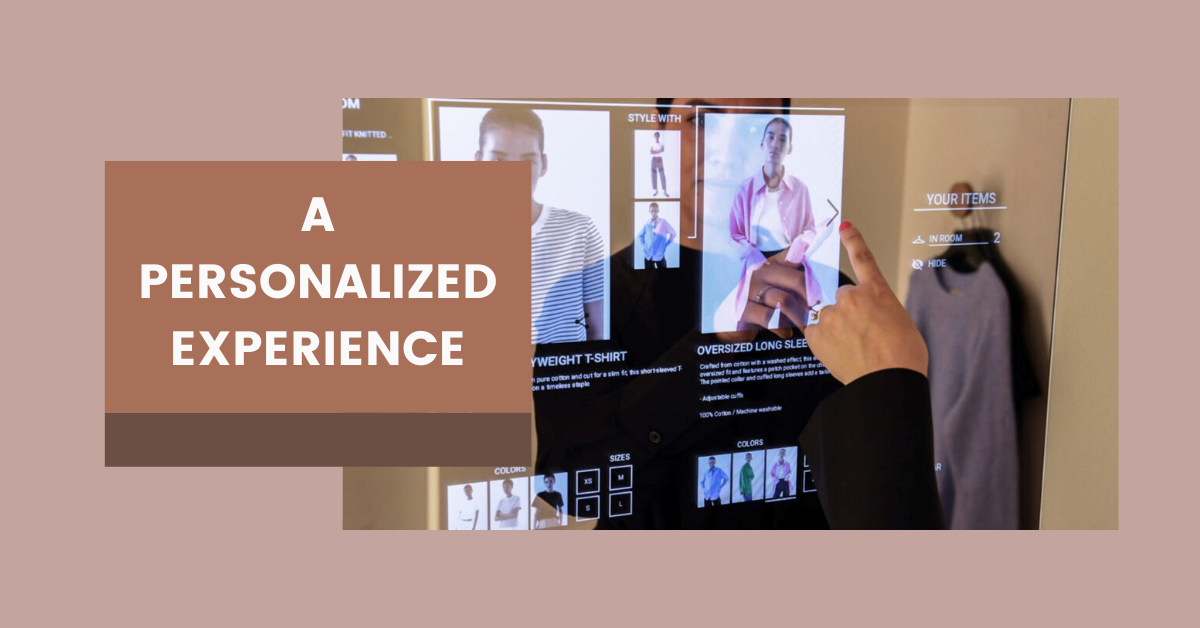


In recent months, brands like Lululemon and Nike experienced increased in-store foot traffic, even though other sporting goods and apparel stores saw a decline.
While customer loyalty and brand appeal may partially explain the spike, it hardly seems coincidental that both brands have been focusing on experiential store strategies. As brick-and-mortar stores continue to compete with the ease and popularity of online shopping, a unique experience – whether it’s hot yoga classes, in-store limited edition products or customization stations – can be the key to getting customers off their couches and into your stores.
Experiential retail offers shoppers an experience that engages, entertains, and creates memorable and unique experiences. Rather than just displaying products on shelves, stores feature product demonstrations, workshops, AR technologies and other immersive elements that help customers connect with the brand and its products in a more meaningful way. The goal is to create a positive and memorable shopping experience that encourages customers to return and become loyal advocates of the brand.
Many consumers are enticed by experiential retail. In fact, 71% say they would shop at a store more often if it offered AR technology. When stores use Artificial Intelligence (AI) and automation to make shoppers feel like VIPs, the experience is not only Instagrammable, but also impressive enough to make them want to return.
Picture this: You’re short on time but need a new shirt for an upcoming conference. You run into a store, grab a few different styles and head to the fitting room. The cut is slimmer than you expected – but instead of calling out to the associate for a new size, or rushing to get dressed and go look for it yourself, the mirror asks you if you’d like to try it in a different size.
WATCH: COS Smart Store in Beverly Hills
You tap yes, and choose a few extra colors too. Plus, you probably could use an extra pair of pants for the trip, and the style that the mirror recommended would go well with the shirt. In a few moments, the store associate appears with your new items. You make a few final choices, and without even leaving the fitting room, you tap the mirror prompts to check out. The associate brings you a bag, and you’re on your way.
So simple, so seamless, and yet, you feel special – like that shopping experience was built to be exactly what you needed it to be.
RELATED READ: Top Retail Trends to Recession-Proof Your Business
The AI-powered store doesn’t just create a better shopping experience – it also enables a better selling experience. Store associates are empowered with real-time awareness of shopper needs, consumer preferences and inventory status.
For example, as soon as the customer we just discussed checks out, the store associate receives an alert of any items in need of restocking, and the optimal location to display and stock them. That’s because – with every single purchase – the store gets smarter, gaining a deeper understanding of what sells best where, to whom, and next to which other products.
With every single purchase – the store gets smarter, gaining a deeper understanding of what sells best where, to whom, and next to which other products.
Using a smart store mobile app, associates have visibility of real-time count and location of all items on the floor, allowing them to keep customers engaged, provide faster service, and adapt to peaks in traffic and demand.
Online shoppers can quickly and easily pick up or return items using QR codes and smart lockers – without any staff involvement.
Whether purchased in-store or online, a quick inspection and barcode or QR code scan enable rapid reentry into in-store inventory or return to the vendor.
With a single, real-time view of not only store inventory but also omnichannel orders and customer interactions, retailers can meet the customer where they are. App notifications direct in-store workers to pick, pack and ship orders for on-time delivery.
No need to hassle customers who want to take their time trying on clothes, or even worse, appear unavailable when they do need assistance. The mobile app tells associates exactly what items a customer needs, exactly when they need them.
Real-time task creation directs associates to stock shelves throughout the day based on inventory needs and downtime, so closing time is no longer a restocking frenzy.
The use of AI and automation in experiential retail can help increase foot traffic and enhance customer satisfaction. Offering interactive elements and personalized experiences creates a positive and memorable shopping experience, encouraging customers to return and become loyal brand advocates. AI-powered stores can also arm retailers with real-time awareness of shopper needs, consumer preferences and inventory status, enabling them to meet customer needs and enhance time and task management for store associates.